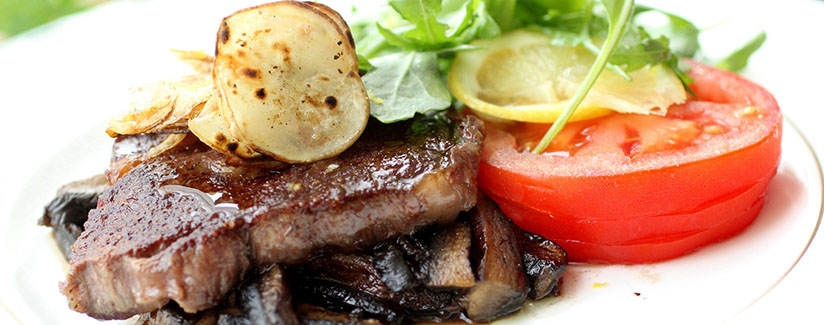
Are Hormones in Milk and Meat Making Kids Bigger?
A recent inquiry from a concerned parent was submitted to us on the effect of hormones in meat and milk products may be having on her children as well as on society in general. Here is the inquiry:
“Do hormones in meat and milk products make our children bigger? Not fat, just bigger? Two of my children, both big meat eaters, are very large. My son is 6‘ and my 12 year old daughter is 5’8” My husband is 5’11” and I’m 5’6”. Our daughter that has never been a big meat eater is 5’4’. When my son was still at home, we’d go through 17 gallons of milk in 2 weeks. Do the hormones have anything to do with this?”
We asked Dr. Terry Etherton, Distinguished Professor of Animal Nutrition and Head of the Department of Dairy and Animal Science at Penn State University, to respond. Dr. Etherton is an internationally recognized expert for his research in the area of endocrine regulation of animal growth and nutrient metabolism and is one of the foremost experts in the world on the biology of porcine and bovine somatotropin action in pigs and dairy cattle.
“The overwhelming scientific evidence indicates that there is no increased health risk from consuming meat and milk that is associated with the hormones found in these products. The reality is that there are many, many naturally occurring protein and steroid hormones in all animal and plant-derived foods.”
Dr. Etherton notes that claims stating hormones in meat and milk are linked to overgrowth in humans are simply unfounded. In fact, he’s been writing on the subject for years, having reviewed the research and working with experts in the field. Take, for example, this post from 2007. In it, Dr. Etherton discusses how one milk company chose to label their milk with “FREE OF ARTIFICIAL HORMONES” and “FREE OF ARTIFICIAL GROWTH HORMONES” statements.
To this, Dr. Etherton focuses on the facts about hormones:
Hormones are naturally occurring compounds produced by all plants and animals (including humans) to regulate specific bodily functions. Take insulin for example, this is a protein hormone that helps our bodies utilize glucose (blood sugar)—without this hormone you will die. Our bodies produce and depend on hundreds and hundreds of hormones for us to live. Hormones are not limited to the animal kingdom; plants also depend on hormones to grow and develop.
So all of our food naturally contains many hormones, and consuming them is unavoidable. Knowing that all food has many hormones, primarily protein based, what effect do they have on us? Well, protein hormones are simply broken down and digested to furnish our bodies with essential amino acids.
Back to the statements found on the milk jugs Dr. Etherton saw: “My contention is that Rutter’s advertising is now very confusing and extremely misleading.”
And the United States Food & Drug Administration agrees. In 1994, the FDA approved the synthetic compound named “bovine somatotropin” (rbST where “r” means synthetically produced) or bGH (bovine growth hormone). This protein hormone is an exact copy of the – bST that is present in all cows and all cow’s milk. Similarly, hGH (human growth hormone) is present in human growth milk.
What does rbST do? An injection of the hormone every two weeks allows cows to produce more milk than they would have been able to without it.
Dr. Etherton:
Since 1994, rbST has been safely used by dairy producers to increase milk production. This product has been more thoroughly studied and evaluated than any other animal product. The FDA thoroughly examined its human safety, and during over a decade of use, I have never seen any harm to cows.
The FDA has maintained that there is no difference between milk from cows who have received rbST and cows who have not received it. All milk contains bST and the milk from cows that received rbST has no more bST than milk from cows who didn’t receive it. In fact, there is no test that can distinguish whether a milk came from a cow that received rbST.
*Note: The reason Health Canada, Europe and other countries decided to not approve rbST use in their countries is over concerns for animal health and welfare, not because of human health concerns.
Dr. Etherton has written on this subject extensively at his blog, the Terry Etherton Blog on Biotechnology.
“400KCAL STEAK” by Tella Chen is licensed under CC BY 2.0.
*Updated 6.1.2016*


























